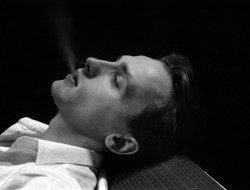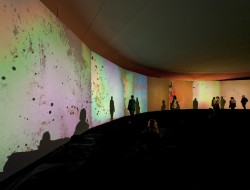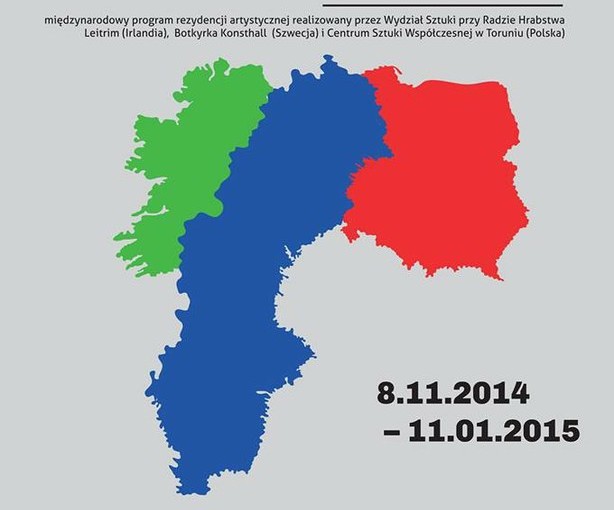8 November – 11 January 2015
Opening: 7 November 2014, 7 PM
8 November – 11 January 2015
Opening: 7 November 2014, 7 PM
„Enter quickly, as I am afraid of my happiness” (2000:123). Derrida explains: As if, then, the stranger could save the master and liberate the power of his host; it’s as if the master, qua master, were prisoner of his place and his power, of his ipseity, of his subjectivity (his subjectivity is hostage). So it is indeed the master, the one who invites, the inviting guest, who becomes the hostage – and who really always has been. And the guest, the invited hostage, becomes the one who invites the one who invites, the master of the host. The guest becomes the host’s host. The guest (hôte) becomes the host (hôte) of the host (hôte). (2000: 123-25) (Chin-yuan Hu 2013)
Jacques Derrida speaks of the anxiety around the loss of self in accepting otherness, playing with the notion of hospitality as conditional in terms of the host guest relationship or unconditional hospitality in terms of truly accepting otherness. The possibility of the host becoming the guest or the guest becoming the hosts host relates to this underlying acceptance of the other and the possibility of change occurring within the encounter. This statement becomes a device to make explicit and forego the conditional and offers a level playing field where both host and guest might meet as equals.
The works presented as part of this LOCIS project are premised on the notion that change is both possible and desirable, the works seek to transform, transcend or transgress distinctions between the ideas of artist and activist, audience and performer, protagonist and subject. Interrogating the spaces of collective behaviour in order to instigate or infer alternative narratives within these relationships. The gallery becomes a site for engagement but a site among sites, for the works are situated within public and collective spaces as much as private and individual space.
The gallery operates as an armature which might support the activities of the individual artists, playing host to these diverse practices from varied cultural and social backgrounds. Fluctuating between host and guest, between conditional and unconditional. Informing meaning and identity in processes of positioning and disposition.
Phoebe Dick (IRE) plays with notions of performer and performance, offering a platform for exchange through the act of participation, the viewer is invited to perform for the staff in the front of house in exchange for a ticket to enter the show. Activating the object(s) and process of engagement through the mechanics of exhibition, performance and reciprocation.
Liliana Piskorska (PO) invites the staff, board of COCA, and audience, to reconsider the objectives of the cultural centre and opens a dialog around issues of gender and identity politics within the frame work of the gallery program. Advocating for a social as well as a cultural responsibility towards the artist and the artwork, reflecting on notions that institutionalized public legal entities have the ability to shape social thinking.
Dagmara Pochyła (PO) reflects upon the collective, and brings everyday public structures into the gallery as objects of monumental positionality. These sites of memory and collective identity formation destabilise the notion of shared meaning in history and ideology, these recalcitrant objects refuse appropriation and offer the viewer an opportunity to renegotiate memory in the present.
Emma Houlihan (IRE/SWE) fluctuates between protagonist and antagonist, reading the city and its potential for transformation. A series of actions exist within the city and gallery, interactions and interventions which crystalize the incidental moment in an expanding process of enquiry.
Seamus Nolan (IRE) sets in motion a project to remake the discarded relief panels of two little known Polish artists Józef Murlewski and Czesław Woźniak, the designers of the ornamental relief panels of the Children’s building in Torun. These interior panels were recently destroyed to make way for the refurbishment of the buildings new identity as a Pizza Hut, although the exterior of the building has been preserved as a protected structure under the UNESCO heritage city guidelines.
 The Institution is funded from the budget of Toruń Municipality
The Institution is funded from the budget of Toruń Municipality


